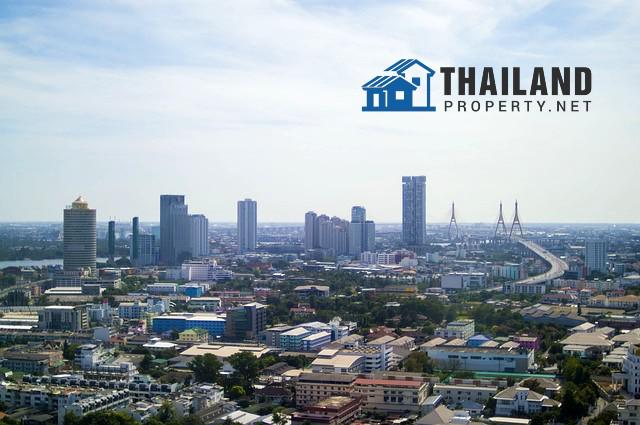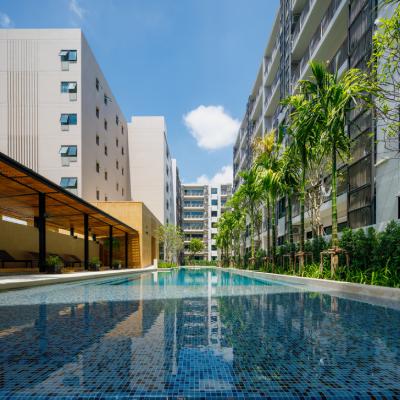FIND YOUR DREAM HOUSE
Make Your Next Move, Your Best Move - The Future Of Buying And Selling Is Here
Location
Type
Bedrooms
Bathrooms
Status
Price (฿)
0 ฿
0 ฿
x

Welcome to
Thailand-property.net
Thailand-property.net

continue with
Login to
Thailand-property.net
Thailand-property.net
Email address
Password
Login
forget password
or continue with
Register to
Thailand-property.net
Thailand-property.net
Email address
Password
Confirm password
Register
or continue with
Reset your account password
Email address
Reset password
By continuing you agree to Thailand-property.net Terms of Service and Privacy Policy.
New here? sign up
Got an account already? Log in
Back to log in
Is the Thai Apartment Market Slowing Down?
December 17, 2019
Occupancy rates are often influenced by factors like building condition, in-house facilities, available services and unit offerings.
For several Thai people, an "apartment" is simply an old school structure with middle-class amenities.
For expatriate families, the ideal apartment should demonstrate these qualities:
(1) they tend to have more space
(2) accessible location
(3) experienced staff who monitor and maintain the unit on a regular basis
(4) reasonably priced

Find an extensive list of Thailand properties for rent here. This article was originally written by Supawit Mahaguna, CBRE Thailand analyst, researcher and consultant. Source: [1]

Photo courtesy of Florian Wehde via Pixabay
Expats Requiring a Thai Apartment Have Declined
With the Thai economy dipping while the economies neighbouring countries are looking rosy, expats are setting their sights elsewhere. According to CBRE Research, Japanese expatriates recently entering Thailand dropped by 2.8 per cent year-on-year. This means approximately 1,000 Japanese work permit holders (sans dependents) are no longer in the country in the third quarter of 2019. The Japanese are Thailand's largest expatriate nationality and this year is the lowest their numbers have ever been in 6 years. In effect, Bangkok apartments occupancy rate was also at a six-year low, down by 92 per cent. Multinationals from Japan are now coming to Thailand without on a project basis and often without their families. Some firms are also replacing Japanese staff with Thai residents, which helps them cut back on costs.Silver Lining in the Thai Apartment Market
However, a handful of Grade A apartments in Sukhumvit and Central Lumpini seem to defy the odds. Despite the loss of Japanese expatriates, the area maintains an impressive 98 per cent occupancy rate. The buildings in these areas are either less than 9 years old or recently renovated. All kinds of units are available in these building, including studio and one-bedroom units. They also offer an extensive range of facilities. Indeed, Sukhumvit and Lumpini apartments are a testimony that a declining apartment market does not always translate to low occupancy rates. The conditions set forth above must be present for apartments to sell out in the midst of an economic slowdown.Survival of the Fittest
As older apartments that fail to comply with the requisites listed above continue to experience low occupancy rates, CBRE warns that the market will feature a "survival of the fittest." Owners must adapt to new market conditions, so they can take part in a roster of apartments requiring redevelopment. Old apartments, in a bid to recover losses, are rebranding themselves as "serviced residences" (similar to serviced apartments, but the rental duration is longer). As serviced residences, they offer optional cleaning and laundry services. Rental terms can be monthly or yearly, depending on their agreement with tenants. This kind of set up gives serviced residences an edge over serviced apartments and rental condo units. CBRE is hopeful and optimistic that low occupancy rates and economic slowdowns are not always two sides of the same coin. But only if buildings are in great condition, offer family-friendly features for more traditional markets, are strategically placed and can bring new experiences to trend-oriented tenants.Find an extensive list of Thailand properties for rent here. This article was originally written by Supawit Mahaguna, CBRE Thailand analyst, researcher and consultant. Source: [1]
View mortgage calculator
X
Mortgage
5 years
10 years
15 years
20 years
25 years
30 years
฿
฿

 In limbo between a sluggish economy, growing household debt and excess supply, 2019 presented quite a challenge to Bangkok's ...
In limbo between a sluggish economy, growing household debt and excess supply, 2019 presented quite a challenge to Bangkok's ...  It seems this year will be a good one for Hua Hin's real estate market. SET-listed Charn Issara ...
It seems this year will be a good one for Hua Hin's real estate market. SET-listed Charn Issara ... 
